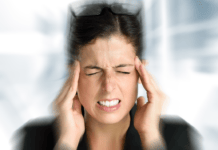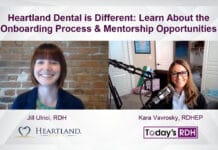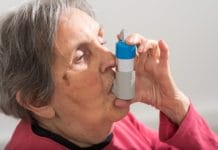Question
Recently, or at least since COVID, there has been an uptake of “bad patients” that can ruin your reputation. I’m wondering if you could write an article about how dental hygienists can protect themselves from negative and unfounded reviews.
It’s unfortunate that, as a hygienist, we are put in a bad position to navigate between oral health, patient education, offering a “painless cleaning,” and keeping the patient happy. At the same time, we are subject to negative reviews and lies that unhappy people fabricate. There is nothing we can do if a patient becomes vindictive due to their poor oral hygiene habits and mental issues.
I would really love to see some advice or discussion on this matter. It happened to me, and I’m just devastated. Thank you.
Kara’s Response
I am so sorry someone has given you a negative review and the devastation it has caused you. It hurts when patients are unhappy; after all, hygienists tend to be people-pleasers. That hurt can be even worse when they put their unhappiness on you, especially when you are trying your best to provide excellent care for them.
Making this more challenging is that our brains seem to be wired to focus on one negative thing, even if 100 positive things counteract it and show otherwise. I don’t claim to be a psychologist, psychiatrist, or therapist, but I’ve read a bit about this because of dealing with social media every single day for the past decade and what comes with that. I will refrain from offering advice to get over it or not to take it personally because I have found that to be nearly impossible to do myself. Simply put, it profoundly hurts, even if it’s just one negative person or one negative review. I validate your feelings.
Today’s RDH has published an article written by Rebecca Friend, BS, RDH, about dealing with negative reviews. You can read it here. Beyond this article, I would recommend that you and/or whoever in your office has been given the task of monitoring and responding to reviews do a Google search on responding to negative reviews because a plethora of information is out there.
Please know that one negative review probably won’t ruin your reputation. Even the best products, companies, and people have critics and bad online reviews. Apple’s Steve Jobs and Meta’s Mark Zuckerberg have literally changed the world, but look at what is said about them. I’m sure you have your thoughts about them right now. How you deal with negativity or bad online reviews is key.
There are steps that can be taken to manage bad reviews. However, there really isn’t a surefire, silver bullet way of “protecting” yourself from negative, vindictive patients and the reviews they may leave. Working in an office where the doctor supports and backs up their team members and where team members support each other helps quite a bit, though. If you are not supported, that may set you up for tough situations that are hard to protect against from the get-go, like if you receive a negative review.
In this case of receiving a negative review, a supportive doctor would hear your side of where the negative review may have stemmed and what happened from your perspective. Taking the time to read the patient’s chart to better understand the patient’s background before deciding on consequences to you, if there are any, is a sign of support too. A true leader will gather all information, take it into consideration, and make an effort to work through the situation in a positive way. On the other hand, someone who may not be an effective leader might have a knee-jerk reaction and fire you on the spot. If that happens, this may not be someone you want to work for anyway.
Sometimes, patients need to be dismissed because of bad behavior. An effective leader will make these decisions when appropriate. Depending on the depth of the situation, certain patients can be a legal liability to the office and a liability to clinicians’ licenses. If your doctor does not take the appropriate action when necessary, it’s time to find an office that offers that support and is a better fit. The front office and/or office manager also play a role in this. They have the critical role of being gatekeepers of the office and are in a unique position to help de-escalate angry patients. Their role is no simple task!
I would also recommend considering what the patient who left a bad review said and evaluating if the situation could have been handled a touch better or just differently. Make it a learning experience. If you do that, the situation doesn’t have to be bad; you can grow from it. As Maya Angelou said, “Do the best you can until you know better. Then, when you know better, do better.” This is much easier said than done, though!
Please remember that you can’t control others’ behavior or actions, but you can control how you respond to them. This is something I have to tell myself every day. Another thing I must remind myself of that may help you is “hurt people, hurt people.” Meaning someone might exhibit bad behavior, lash out, write a bad review, etc., because they aren’t in the best situation themselves. Because of this, they deflect and put that negativity and blame on other people. It’s a defense mechanism.
For example, if I publish this as an article and share it on social media, there will likely be comments that I should have said this instead of that or other things to that effect. Everyone has a right to their opinion. However, with the invent of online platforms, sometimes people don’t take a step back before they write something and take 10 seconds to think how they would feel if someone wrote such things to or about them.
It’s very easy to sit behind a screen and write a negative review, judge, blame, or basically rant without thinking about the person on the receiving end and the repercussions words can have on others. Because there is a person, a real-life human with real feelings, that does, in fact, receive those words. Once words are said or written, they can’t be unsaid or unwritten. They are out there, and even if they are deleted, they are still in someone’s mind. It’s like trying to put toothpaste back into the tube; it can’t be done!
Some people also have a hard time taking responsibility for their issues, including their oral health. It’s much easier for them to blame a hygienist than to look inward, have self-awareness, and accept and take responsibility that they didn’t do their part, which is why they are in the situation they are in now. When mental health issues come into play, this makes things even harder.
This is a tough one because, as hygienists, sometimes we care more about a patient’s oral health and overall health than they do. On the flip side, if we didn’t care, we might be deemed poor clinicians. It’s a double-edged sword. I suppose finding the right balance of empathy is how to remedy that, but keeping empathy in check is not something I do well myself, so I’m certainly not going to try and speak to that.
Again, I am sorry a negative review has devastated you. Though it doesn’t remedy how you feel, do know that you are certainly not the only target of a bad review. Rebecca said it best in her article I mentioned above, “The fact is every office will receive an unanticipated negative review. Perhaps the patient was having a bad day, or perhaps the office was having a bad day. Human nature likes to accentuate the negative, so the challenge here is to accentuate the positive!”
Before you leave, check out the Today’s RDH self-study CE courses. All courses are peer-reviewed and non-sponsored to focus solely on high-quality education. Click here now.












